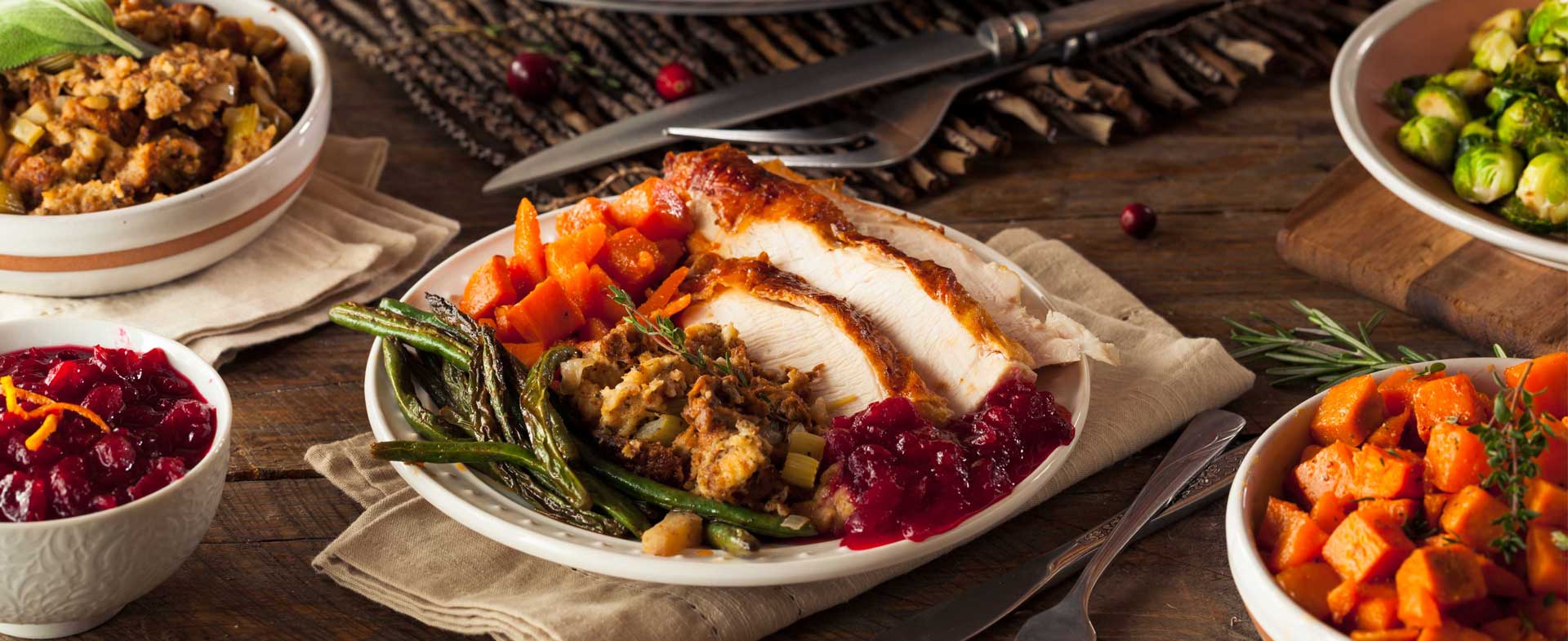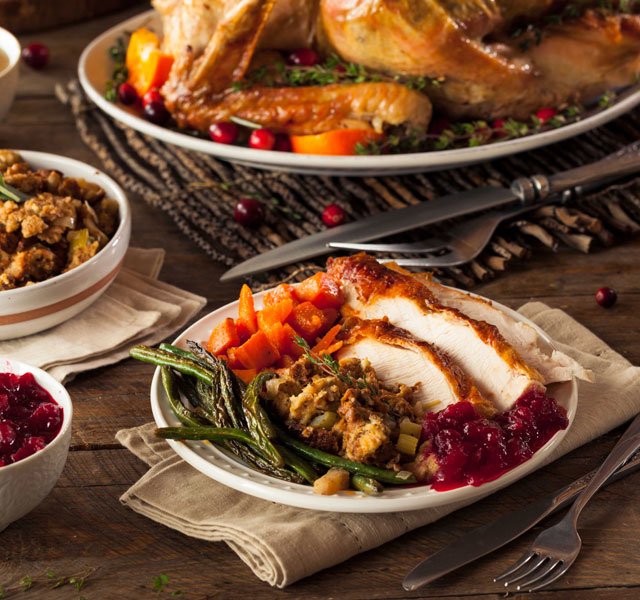Thanksgiving gets a bad rap because most people overindulge. Truth is, many traditional Thanksgiving Day staples are actually good for you. The key, says registered dietitian Andrea Thelen, is making sure you don’t save all of your calories for the holiday feast.
“Don’t skip meals on Thanksgiving, make sure you’re hydrated (with water, not booze) and eat a healthy snack an hour or two before the main event,” she suggests. Then, when it’s time to visit the buffet, fill half of your plate with deeply-hued fruits and vegetables (think sweet potatoes, Brussels sprouts and cranberries).
From apples and cranberries to turkey and Brussels sprouts, here are Thelen’s top Thanksgiving picks.
- Apples. Apples are an ideal pre-meal snack. The portion-controlled fruit is not only a rich source of fiber, an average-sized apple costs you less than 95 calories. It’s sweet, satisfying and acts as a solid base for a healthy Thanksgiving day dessert (think homemade apple crumble with baked apples, rolled oats, cinnamon, nutmeg and just a dash of brown sugar).
- Turkey. Turkey is a high-quality source of lean protein and an excellent source of an essential amino acid called tryptophan (which is best known for making people feel sleepy, but it can also help strengthen your immune system). Just limit your portion to no bigger than the palm of your hand, make sure to remove the skin and go easy on the gravy. Another turkey coup: You can use any leftover turkey meat to create lots of different dishes after the feast.
- Pumpkin. Pumpkins are high in fiber, low in fat and chock full of important minerals such as potassium, zinc, iron and magnesium. They’re also loaded with beta carotene, which preserves eye sight, and powerful antioxidants like vitamins C and E, which help boost the immune system.
- Brussels sprouts. Just one cup of this superfood packs 4 grams of fiber and more than a day’s worth of vitamin C. Plus, the sulfur compounds in cruciferous vegetables like Brussels sprouts help protect the gut, bolster the immune system and stave off chronic disease. Just rinse the sprouts, drizzle with olive oil, sprinkle with cracked pepper and roast at 400 degrees for 15 minutes.
- Winter squash. From acorn to zucchini, squashes post a bevy of benefits. Most are rich in fiber, vitamin A and sometimes vitamin K. They’re also quite versatile in the kitchen and can be used in pastas, soups, salads and even as a stand-alone side dish.
- Cranberries. Not only do these potent berries add a pop of color to your plate, they’re also bursting with disease-fighting antioxidants. Add them to stuffing, drop them into cocktails and drizzle them on top of salads. Just don’t forget the homemade cranberry sauce. Make your own with orange juice and cinnamon (instead of sugar) for a lower-calorie alternative to the store-bought stuff.
- Chestnuts. Chestnuts boast many of the benefits of other nuts with only a fraction of the fat and calories. They’re a good source of protein, fiber and vitamin E. But unlike their tree nut cousins, they’re also high in vitamin C.
- Pumpkin seeds. These tiny gems contain an ideal combination of protein, healthy fat and fiber. Your body digests all three nutrients slowly, which helps you feel full.
For a healthier Thanksgiving – without the indigestion – keep portion sizes in check by using smaller dishes, and only visit the buffet once. If you’re a guest at someone else’s feast, bring a dish that you can indulge in guilt-free (an autumn salad, roasted Brussels sprouts or simply baked yams are great options).
To find a registered dietitian at Henry Ford, visit henryford.com or call 1-800-HENRYFORD (436-7936).



